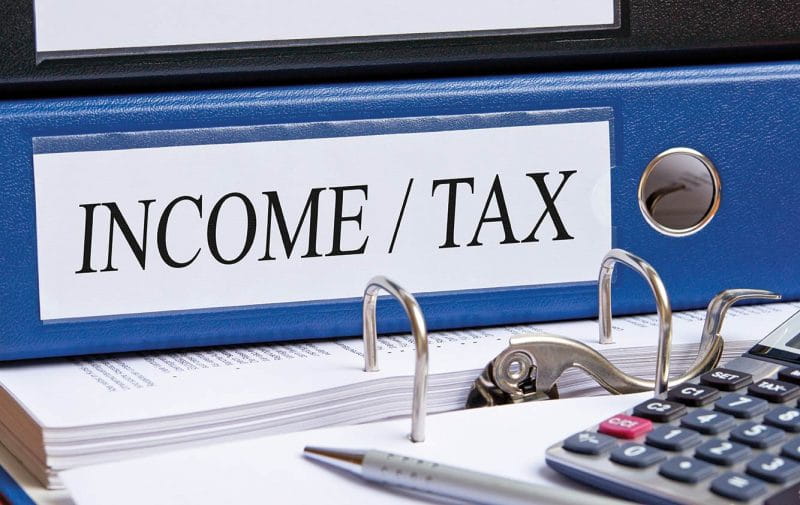As a responsible Indian citizen, you may have never thought of evading tax, but due to lack of clarity regarding basic Income Tax (IT) rules, you could be making innocent mistakes, which could prove to be an expensive affair. Shilpa Shah guideS you on where you could be going wrong and what you must do to avoid being in the tight spot.
Taxes form a crucial source of revenue for the government (govt.) to discharge its various responsibilities, such as providing basic provisions to its citizens such as healthcare through government hospitals, national defence, infrastructure development and salaries of government employees, etc. Hence, it is important to understand that taxes are not a burden but a price paid for civilisation. Also while payingtaxes; you should be wary of making any errors. Though some mistakes could be as silly as a calculation error, other grave ones could even fetch you a notice or a penalty from the Income Tax (IT) department. Listed below are some of common ones. Pay attention!

Mistake #1—Not filing returns
A very common mistake made by many tax-payers is not filing returns since their salary income is subject to TDS by the employer. However, you have to file Income Tax Return (ITR), if your gross total income exceeds #2.5 lakh. This limit is #3 lakh for senior citizens who are more than 60 but less than 80 years and #5 lakh for those who are 80 years and above. Also you must file returns, even when your tax liability reduces to zero post deductions. For eg, if your annual income is #4 lakh and you have invested #1.5 lakh under Section 80C, now even though your tax liability is zero, you are still required to file the ITR. Not filing returns may fetch you a notice from the IT department.

Mistake #2—Failing to declare income from ex-employer
Whether you have worked part-time or full-time, or switched jobs, the income tax rules and regulations require disclosure of every single rupee earned by you in a financial year. In case, your current employer has no idea about your income from your previous employment, the tax calculation on the income from your new job will be different from your actual tax liability (i.e., the tax on your total income from previous and current jobs).This grave error will get highlighted, when you consolidate your incomes to file the ITR and then you may even end up paying interest and a penalty too, due to delayed tax payments. Hence it is critical that you share all your income details from your ex-employer with your current employer.
Mistake #3—Incorrect computation of interest income
You should be aware that all interest income from fixed deposits, recurring deposits etc., is fully taxable and needs to be included in the total income. While interest earned from deposits is subject to Tax Deducted at Source (TDS), no TDS is applied on the interest from the savings bank account. However, since these incomes are subject to tax, you are supposed to declare them in the ITR under ‘income from other sources’ and then claim the appropriate deduction. Please note that the deduction of #10000 per year (Section 80TTA) is available only to the interest earned in a savings bank account and not to any other interest income.
Mistake #4—Not accounting for clubbed income
In general, you are taxed on the basis of income earned only by you. But in special cases, some income from another person is clubbed to your income and you may be liable to pay tax on the additional income. This scenario is known as clubbing of income. So if you have invested money in the name of your family members such as your spouse or minor children (below 18 years), the interest income earned from such investments, has to be clubbed to your individual income and you are supposed to pay taxes accordingly.This is basically done to ensure that nobody can evade tax by moving income or assets within his/her family members.

Mistake #5–Non-disclosure of tax-free income
Sometimes, tax-payers have a misconception that since the interest income from certain investments such as tax-free bonds, Public Provident Fund (PPF) is exempted; there is no need to disclose it. But, even though there is no tax-liability or penalty for not disclosing these incomes, it is advisable to do so, as you will benefit by maintaining a clean track record with the IT department. In case, you choose not to report your tax-free income, the IT department will not know the source ofa large amount in your account and this may invite further scrutiny. If this happens, you will have to furnish all the details as required by the tax authority. Hence, to avoid such hassles, it is better to disclose it all upfront.
Just remember, when it comes to taxes, honesty is definitely the best policy. And now that you are aware of the possible mistakes, do your best to avoid them, pay your taxes correctly and relax!
Did you know?
The Central Board of Direct Taxes (CBDT) is the highest executive authority under the IT laws and has the power to make rules from time to time.
Permanent Account Number (PAN) is a 10-digit unique alphanumeric number issued by the IT department. It is compulsory to quote your PAN detailsfor every transaction with the IT department andfor other financial transactions such as opening of bank accounts, deposit of cash in bank account, opening of Demat account, transaction of immovable properties, dealing in securities, etc.
ITR is a form through which the particulars of income earned by a person in a financial year and taxes paid on such income are communicated to the IT Department. Different forms are prescribed for filing of returns basis different status and nature of income.
Apart from salary, allowances are basically fixed periodic amounts, paid by an employer for the purpose of meeting some particular requirements of the employee, such as tiffin allowance, transport allowance, uniform allowance etc. For the purpose of IT Act, they are generally classified as taxable allowances, partially-exempted allowances and fully exempted allowances.


